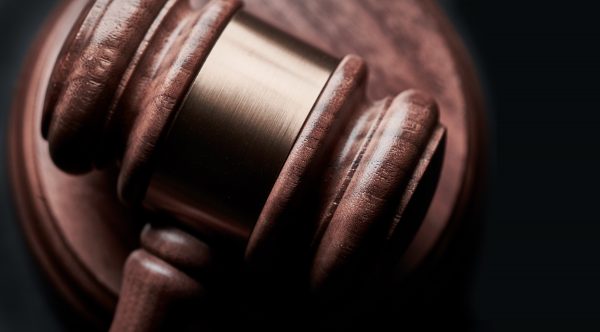[Update] On December 30, Azerbaijan’s parliament approved a new media law after its third and final reading. The law was passed despite mounting criticism from local journalists and is set to be signed by President Ilham Aliyev and become effective as of January 1, 2022. Hailed by its proponents as a reform bill, critics of the law warn that the new law’s will have an extensive impact on media freedom and independence in Azerbaijan [more here].
***
The plans to roll out a new Media Law in Azerbaijan were announced in January 2021 following a Presidential Decree “on deepening media reforms in the Republic of Azerbaijan.” Now, almost a year later, despite local advocacy by journalists and news platforms to reconsider adopting the legal document, the law passed its second reading on December 20, 2021. Although the law has not been finally approved and signed by the president, the local media already reported several citizens fined or warned over the content they have shared online.
The controversy of the new law
On December 16, two days after the draft law passed its first reading a group of civil society representatives issued a statement urging the lawmakers to reconsider the draft law in its current form. According to the statement, the law “opens up a wide range of opportunities for the state to determine who can engage in journalism and rejects the model of media self-regulation. It inflicts incurable wounds on freedom of media, which is an important component of the right to freedom of expression.”
According to Eurasianet.net reporting:
Among the many new regulations: The state will now create a registry of journalists, who have to fit specific criteria (including lack of a criminal record) to be included. Owners of media outlets will have to live in Azerbaijan, which would effectively ban many of the country’s independent media which are run by Azerbaijanis who fled the country. Online news outlets will be required to publish at least 20 news pieces on a daily basis.
There are also a wide variety of content restrictions in the new law. Journalists will be prohibited from “propagating superstitions.” “Tarnishing a business’s reputation” will also not be allowed. Section 14.1.11 stipulates that “facts and events must be interpreted impartially and objectively, and one-sidedness must not be allowed.”
The intent appears to be to give the government more freedom to block media it deems unfriendly.
Reactions
Media law expert Alasgar Mammadli told Kanal13 in an interview that the law now grants a right to block online content on a whim. Azerbaijan is already blocking a wide range of independent and opposition news websites since 2017. The most recent findings were released this summer by AzNet Watch in partnership with OONI. But media censorship is an ongoing issue according to Qurium Media Foundation that released another report, this summer, documenting a decade of media censorship in Azerbaijan based on the organization’s work assisting targeted, and blocked news platforms in the country.
In an interview with Toplum TV, journalist Seymur Kazimov said, the new provisions are “backward.”
On December 22, a human rights organization “Defense Line”, said in a statement that the new law was also in violation of the Azerbaijan Constitution:
Part I of Article 7 of the Constitution states that the Azerbaijani state is a democratic, legal republic, Article 50, Part II guarantees freedom of mass information, as well as prohibits state censorship of the press. However, in recent years, dozens of journalists have been subjected to politically motivated administrative and criminal prosecution, ill-treatment, and illegal interference in the activities of electronic and written publications by administrative bodies.
In its statement, the organization further made calls on the government of Azerbaijani and its legislature to comply with the requirements of Articles 10 (freedom of expression), 47 (freedom of thought and expression), and 50 (freedom of information) of the European Convention.
Gubad Ibadoglu, professor of economics, who manages an online YouTube platform Biz told Azerbaijan Service for Radio Liberty that the new law aims to restrict the media and increase the risk of blocking critical television programs broadcast from abroad.
First signs of controlling online content
On December 21, the Prosecutor General’s Office of Azerbaijan issued a statement that four citizens – Abushov Zamig, Mahmudov Ilgar, Ibrahimov Mehdi, and Safarsoy Rza – were invited to the prosecutor’s office for allegedly disseminating biased information on social networks. All four were warned that in case they repeat the offense, they could face more stringent measures reported Turan News Agency.
In addition, several websites were issued a fine in violation of Article 388-1.1.1 of the Code of Administrative Offenses. According to reporting by Report.az, on December 18, olke.az, and manevr.az, were fined in a total amount of AZN 1500 [USD 882] each over alleged illegal dissemination of information that promotes suicide as a solution mechanism, “while substantiating, inciting, and explaining the methods of its commission.”
Lawyer Khaled Aghaly said the decision was embarrassing. In an interview with Meydan TV, Aghaly said that both websites were fined over publishing exact same text. “Manevr.az” website copied the story published by “olke.az.” According to the law on Mass Media, in case, information was shared from another resource [rather than published as an original text], the news outlet republishing the content should be freed from any responsibility. It is unfortunate that even the courts ignored this [when issuing their final decision],” explained Aghaly.
In addition, on December 18, journalist Sakhavat Mammad, with an online Yenicag.az website, was fined in a late-night trial, on charges of publishing prohibited information on an information resource or information/communication network in violation of Article 388-1.1.1 of the Code of Administrative Offenses.
In March 2020, Article 388-1 of the Code of Administrative Offenses was aggravated with the penalty of up to one-month administrative detention with other sanctions against real or legal owners of internet information resources and associated domain names as well as against users of information-telecommunication networks for the placement, or the violation of provisions of the Information Law aiming at preventing the placement, of prohibited information on such internet information resources.
Commenting on Sakhavat Mammad’s case, media law expert Alasgar Mammadli told Meydan TV that the new law is already being put to use even though it officially enters into force next year. “Calling the journalist to the prosecutor’s office, and then hastily fining him in court [in the absence of an investigation, explicit mentioning of which law was violated, and which secrets were spread], is nothing but a pressure on freedom of speech and is the violation of freedom of expression,” Mammadli added.
But this is also not the first time that a journalist faced punishment over their work, reported Azerbaijan service for Radio Free Europe. In 2019, Mustafa Hajiyebli, editor of opposition bastainfo.com received an administrative sentence. He was accused of instilling chaos among the public. Around the same time, the editor of criminal.az website, Anar Mammadov faced similar charges. A number of other cases were documented in the most recent Freedom on the Net report published by Freedom House.
Finally, one secondary school principal Hikmet Aghajanov was warned by the Prosecutor Office, over alleged online dissemination of prohibited information on suicide according to reporting by Report.az.
December 21 statement by the Prosecutor Office further urged media entities and users of social networks to refrain from publicizing inaccurate and distorted information, warning that further measures would be taken otherwise.
[Update] Over the next month the Prosecutor Office continued issuing warnings. Most recently on January 24, a group of social media users was warned while one social media user was sentenced to a month in administrative detention. Also, on January 24, activist and member of the opposition Musavat party’s youth branch, Aziz Mamiyev was questioned at the police according to reporting by Meydan TV. Mamiyev said it was his social media posts that had him questioned. The activist said police showed him the printout of his TikTok video too telling him he mentioned President Ilham Aliyev there. “They told me, it is your problem if you are criticizing the government but be careful about your writing. Be careful in your struggle,” wrote Mamiyev in a Facebook post adding that regardless he considers the nature of this visit political and pressure by the government against freedom of speech.
In a comment to AzNet Watch, an independent lawyer Emin Abbasov said, “Although Article 54.2 of the Code of Administrative Offenses stipulates that the prosecutor shall initiate proceedings on certain categories of administrative offenses, the last sentence of that article authorizes the prosecutor to initiate proceedings on any other administrative offense. Apparently, the Code of the Administrative Offences (articles 54.2 and 99.3) empowers the Prosecutor General’s Office with wide powers including launching administrative offenses in any administrative offense cases. The wide discretion of criminal prosecution body beyond the criminal offenses, and in particular over the information distributed online puts huge pressure over freedom of expression and free flow of information.”
Gag order around “Terter” case
In another warning issued by the Prosecutor General’s Office, the Interior Ministry, and the State Security Service of Azerbaijan, the government institutions warned of spreading false information on the ongoing Terter Case. According to the wording of the warning, “representatives of mass media, users of social media platforms, as well as participants in criminal proceedings [shall be] informed that the dissemination of preliminary investigation information without proper permission creates liability under criminal law.” The government institutions also warned that measures will be taken against those who disseminate biased and distorted information in order to overshadow the activities of government agencies and the victorious Azerbaijani Army, influence the investigation, and deliberately mislead the public.
The Terter Case refers to 2017 events surrounding a group of Azerbaijani servicemen accused of collaborating with the intelligence and security services of Armenia. At the time, the Military Prosecutor’s Office of the Republic of Azerbaijan launched a criminal case, under Article 274 (treason) of the Criminal Code on treason and other criminal acts. The faith of these men remained largely unknown until the following year, when “persons who claimed to have been illegally detained, interrogated and tortured” began talking about what happened to them on social media platforms. Since then, the case has been widely referred to as the Terter case.
According to a statement by the OMCT issued in April 2021, following the investigations, it was possible to identify that at least “78 Azerbaijani citizens [were] detained and sentenced to between 12 and 20 years in prison, with multiple cases of torture, including 11 deaths in custody of Azerbaijani military personnel and civilians.”
In June 2021, 24 members of the Parliamentary Assembly of the Council of Europe (PACE) signed a motion, requesting to appoint a rapporteur to investigate the reported torture and ill-treatment in the Terter case.
On November 1, Lieutenant General of Justice Khanlar Valiyev, deputy prosecutor general and military prosecutor of Azerbaijan “admitted to local media that more than 100 servicemen were tortured during the investigation of Terter case.”
On November 5, 2021, the case was discussed during a meeting of the Committee on Legal Affairs of PACE according to reporting by Turan News Agency.
What’s next?
The new media law enters into force on January 1, 2022. Media law experts and journalists, say instead, the authorities should have focused on decriminalizing defamation and libel, adopting a law on defamation and relying on existing legal structures rather than draft a new law, which was largely kept away from public discussions and despite demands by independent and opposition journalists and other representatives of civil society, refused to open the draft bill for review and recommendation process as has been the case with the Law on Access to Information, passed by Parliament in 2005. In an interview with Turan News Agency, lawyer Khaled Aghaly explained that at the time, “[the bill] was developed with the participation of media law experts, the local and international community.” Unfortunately, this practice was dismissed this time around explained Aghaly.
Local experts believe it is possible to change the course as long as there is an interest on behalf of the government. Meanwhile, on December 24, the parliament is scheduled to discuss the existing law on Information, Informatisation, and Protection of Information and the list of proposed amendments published on the parliament’s website on December 20. If approved the following changes will be made to the existing bill:
-
in its present form, the law does not oblige the regulatory body to provide the information resource owners, internet and host providers, or other sites’ substantiated opinion reasoning for the content prohibited. In other words, the regulatory body and other state authorities can request to remove the content or block access to websites without any obligation to substantiate their demands;
- The proposed amendment calls for clear reasoning behind the content removal request;
- Previously a whole website could be closed for access for publishing “prohibited information”;
-
- The proposed amendment calls blocking specific content;

![In Azerbaijan the parliament is discussing the controversial law on media – the bill already passed its second reading [Updated January 26]](https://www.az-netwatch.org/wp-content/uploads/2020/03/joakim-honkasalo-DurC25GdOvk-unsplash-538x400.jpg)

